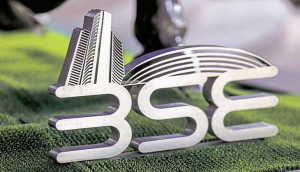
International crude oil prices have come off their recent highs and declined on fears of the possibility of a recession in the global economy following aggressive monetary policy tightening by central banks and the likelihood of weak demand outlook for the commodity. Ongoing Covid-led lockdown in parts of China too led to a decline in the prices.
Also, international crude oil prices declined amid recession fears followed by aggressive monetary policy tightening by central banks.
West Texas Intermediate (WTI) crude oil futures are currently trading at around $110 per dollar, as against its recent peak of around $123 per dollar.
The near-term support lies at $98 per barrel while resistance at $123 per barrel, said Tapan Patel, Senior Analyst (Commodities) at HDFC Securities.
Notably, the prices of the key global commodity had soared sharply on account of supply chain disruptions and as well as some sanctions on trade following Russia's invasion of Ukraine in late February.
"Crude oil prices have witnessed a steep decline after flirting with the $123 a barrel mark for WTI crude even as the market is witnessing significant supply tightness. The selling pressure was visible last week as the US Department of Energy announced the fourth Notice of Sale of 45 million barrels of crude oil from the Strategic Petroleum Reserve," said Sugandha Sachdeva, VP- Commodity and Currency Research at Religare Broking.
Also, the Organization of the Petroleum Exporting Countries (OPEC) and its allies have agreed to ramp up output by nearly 648,000 barrels a day in July and August, nearly two-thirds more than previously planned rises of about 432,000 barrels a day, said Sachdeva.
This agreement of raising output, too, has likely weighed on the crude oil prices.
"Though this move is still not enough to offset the loss of production from Russia, which has declined amid Western sanctions, an array of factors has led to pressure on oil prices from their multi-year highs. Additionally, there are growing worries about ebbing global growth amid the aggressive rate hike campaign of the key central banks in their fight against inflation," said Sachdeva, adding that crude oil may remain under pressure for a while, but the overall outlook is positive and prices look to garner support around $107 a barrel and then $98 a barrel, while key resistance pegged at $130 a barrel.
A decline in crude oil prices is usually good for oil marketing companies as pressure on their margins reduces. However, they would benefit only if low prices sustain for a prolonged period, which doesn't look likely in the current scenario.
According to Naveen Mathur - Director - Commodities and Currencies at Anand Rathi Shares and Stock Brokers, "OMCs are being squeezed by low margins due to lack of hike in fuel prices on one hand and higher oil prices on the other, which have led to shares of BPCL and HPCL plummeting to fresh 52-week lows. Share prices might continue to falter on likely losses in upcoming quarters."
"The supply constraints are unlikely to subside anytime soon as OPEC is not able to make up for their capacity loss, and even if they want to do it, they might not do it. OPEC is possibly looking at making up for their past two years' losses and wants some profits to be shared with the shareholders," said Sriram Iyer, Senior Research Analyst at Reliance Securities.
Overall, the current correction in crude oil prices is short-lived as tightening supplies will outweigh concerns about slowing global demand, Iyer said. He pegged immediate support for crude oil at $100 per dollar.
Ambassador of the Islamic Republic of Iran Dr Ali Chegeni, at an event, said that the Western Asian country was ready to meet India's energy needs by launching a rupee-rial trade mechanism for the export of oil and gas.
Notably, India-Iran bilateral trade has declined sharply after the US imposed sanctions on the west Asian country.
Indian government should import crude oil heavily and aggressively irrespective of the producing nations, including Russia and Iran, for the best interest of the country and to avert any potential energy crisis despite sanctions imposed on trade by the West, an analyst at a domestic brokerage house said.
India maintains that its approach to oil imports from Russia is guided by energy security requirements and many regions and countries have taken policy decisions recently with a similar perspective.
(ANI)
Also Read: Security Council condemns attack against UN peacekeeping mission in Mali







![BJP's Kapil Mishra recreates Shankar Mahadevan’s ‘Breathless’ song to highlight Delhi pollution [WATCH] BJP's Kapil Mishra recreates Shankar Mahadevan’s ‘Breathless’ song to highlight Delhi pollution [WATCH]](https://images.catchnews.com/upload/2022/11/03/kapil-mishra_240884_300x172.png)

![Anupam Kher shares pictures of his toned body on 67th birthday [MUST SEE] Anupam Kher shares pictures of his toned body on 67th birthday [MUST SEE]](https://images.catchnews.com/upload/2022/03/07/Anupam_kher_231145_300x172.jpg)






